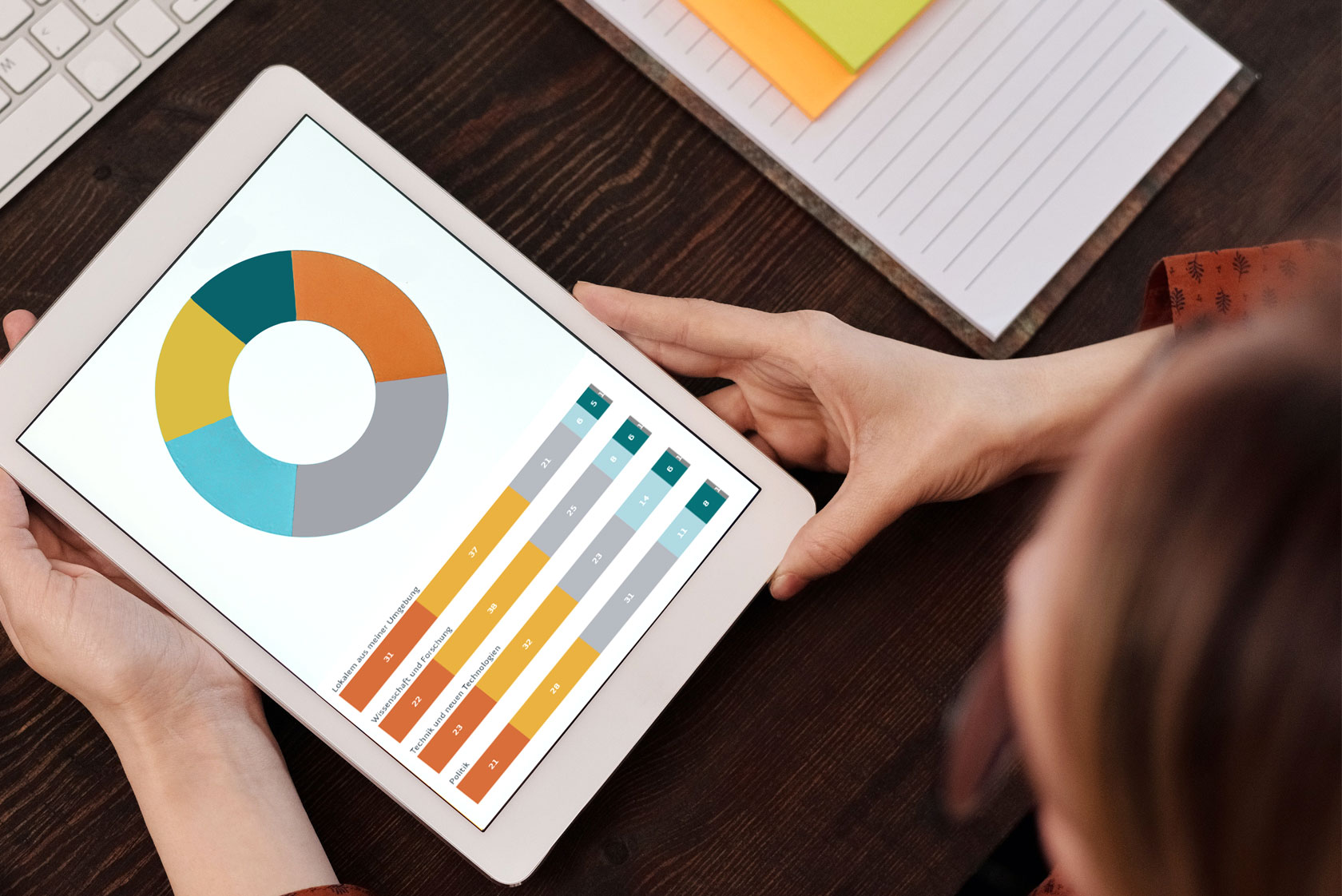
Science Barometer 2020: Starting Points for Open Science?
What image does the public in Germany have of science and research? The Science Barometer is dedicated to answering this question. We have taken a look at the results of the most recent survey from an Open Science perspective.
by Claudia Sittner

The Science Barometer – not to be confused with the Barometer for the Academic World – is a representative opinion poll that has been examining the attitude of German citizens to science and research annually since 2014. There were additional surveys in April and May 2020 owing to the corona crisis (“Corona Special”). Last month, the results of the most recent survey from November 2020 were presented.
The Science Barometer was commissioned by the organisation Wissenschaft im Dialog – An initiative of Germany´s scientific community (Science in Dialog, WiD). This non-profit organisation is aimed at promoting dialogue about science and research in Germany and encouraging as many people as possible to take part. WiD also drives forward the further development of science communication and thereby also of Open Science. The survey is sponsored by the Robert Bosch Stiftung and the Fraunhofer-Gesellschaft.
Around 1,000 citizens from the age of 14 upwards in private households were surveyed during telephone interviews. German-speaking residents formed the parent population. We have taken a look at the results of the Science Barometer 2020 from the perspective of its importance for Open Science in science and research, and present its interesting findings.
Interest stable; traditional media most important source of information
Interest in science and research is stable at 60% of the population and is only exceeded by a 68% interest in local news. That corresponds with the opinion of 59% of those surveyed, who agree with the statement either partly or completely that they personally profit from science and research.
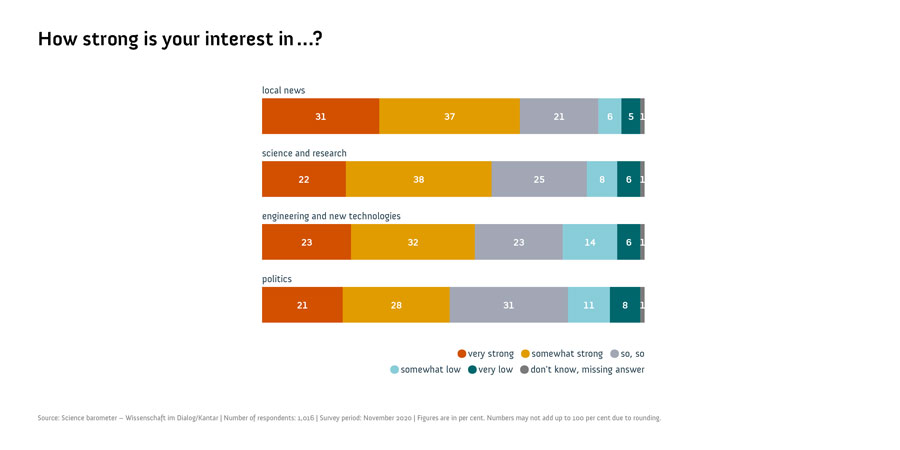
Science Barometer 2020. The use of the graphics of the results is possible if the source “Wissenschaft im Dialog/Kantar Emnid” is mentioned. The graphics run under the licence [CC BY-ND 4.0], adaptations of the format for editorial publications are permitted.
They get their information primarily (80% – occasionally to very frequently) via the traditional media. Less frequently via internet sites of scientific institutions (43%), and in only 29% of cases, those surveyed got their information via research topics on social media. In the light of the corona pandemic, online services of traditional news media became more relevant.
For science and research, this means that it is worth investing more in press and PR work so that relevant scientific findings are taken up by traditional media and can reach the population. Particularly for institutions that are committed to Open Science, this seems to be a good place to start, to ensure that their content and dedication are perceived more strongly. Fittingly, a third of those surveyed are of the opinion that scientists should inform people more strongly about their work.
Trust higher than in previous years; tendency sinking in the COVID-19 year 2020
Trust in science and research is also very high in November 2020 at almost two thirds (60% either tend to trust, or trust completely). In previous years, this value was around 50%. It is interesting here that trust in science and research initially rose sharply – to 77% – at the beginning of the corona pandemic (survey April 2020): in comparison to 2019, four times as many people surveyed trusted it “fully and completely”. However, this value had almost halved again by the time of the November 2020 survey.
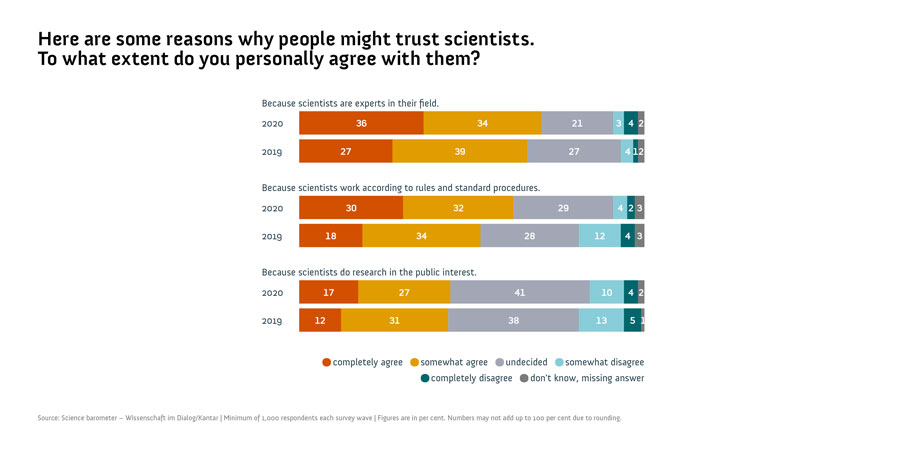
Science Barometer 2020. The use of the graphics of the results is possible if the source “Wissenschaft im Dialog/Kantar Emnid” is mentioned. The graphics run under the licence [CC BY-ND 4.0], adaptations of the format for editorial publications are permitted.
This shows a high degree of confidence in science and research at the beginning of the pandemic and could point to a disappointment experienced by many people during the second corona lockdown.
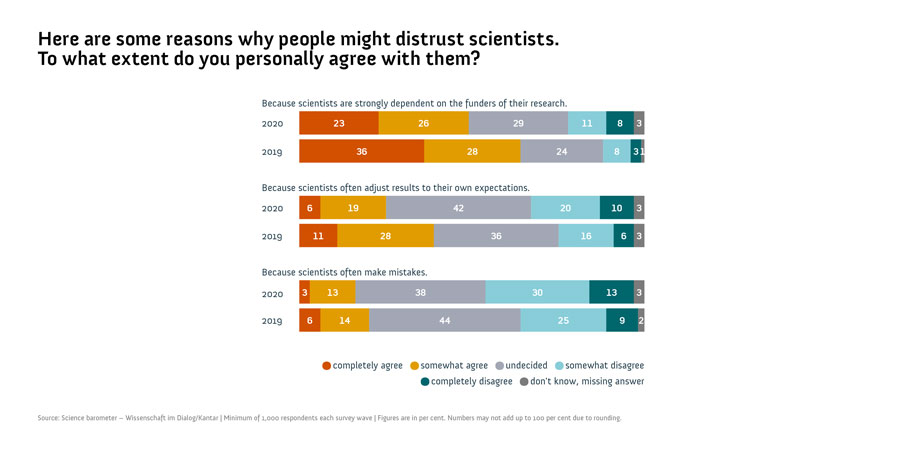
Science Barometer 2020. The use of the graphics of the results is possible if the source “Wissenschaft im Dialog/Kantar Emnid” is mentioned. The graphics run under the licence [CC BY-ND 4.0], adaptations of the format for editorial publications are permitted.
Reasons for the credibility were quoted as expertise, integrity as well as acting in the interests of the general public. Compared to the previous year, the tendency is increasing for all reasons. By contrast, the reasons for mistrust are:
- Dependency on funders (49% tend to agree, or agree fully and completely),
- Scientists adjust the findings to their expectations (25% – see above),
- Often make mistakes (16% – see above).
In comparison to the previous year, however, the agreement with these reasons is to some extent severely reduced. The lowest value since the beginning of the survey series regarding the question of whether people should trust their feelings and their faith instead of science, corresponds to this (23% – tend to agree and agree fully and completely).
For supporters of Open Science, the fact that trust and educational level correlate can play an additional role here: The higher the formal educational level, the greater the trust. If one assumes that in most cases science communication reaches people with a higher level of education in particular, this could be evaluated as a positive sign. For among these people, trust in science and research is high. On the other hand, it also means that science communication needs to make more of an effort to reach people without a higher formal education in order to gain the trust of this group as well.
Corona Special: Science fundamentally important; controversy welcome
When it comes to the coronavirus, the public trust the statements of doctors and medical personnel the most (80% – tend to trust and fully and completely trust), closely followed by trust in the statements of scientists (73% – tend to trust or fully and completely trust). However, some also suspect (39% – tend to agree and fully and completely agree), that scientists are not telling us everything they know about the coronavirus. The same number of respondents also believes that it is important to get information about the virus from outside science.
“The fact that so many people trust in science shows how good the dialogue between science and society is functioning during the pandemic. However, the relatively high number of people who are undecided or sceptical is cause for concern: Science needs to open up even more and also seek to start a dialogue with those who are sceptical. To ensure that this occurs, we need to support all researchers in communicating their knowledge, their results and their working methods”.
— WiD CEO Markus Weißkopf.
Overall, the public wants political decisions in the context of the corona pandemic to be based on scientific findings. Direct interference by scientists in politics, on the other hand, is not desired. On the whole, this is good news for Open Science enthusiasts, as it means that they are awarded credibility in issues regarding corona, and it is therefore worth conducting one’s research as openly as possible and communicating one’s own work. It also shows that Open Science can score points with the public, precisely because of its transparency: Results can be openly understood, and there are no obligatory intermediaries such as journalists, who filter and evaluate the information.
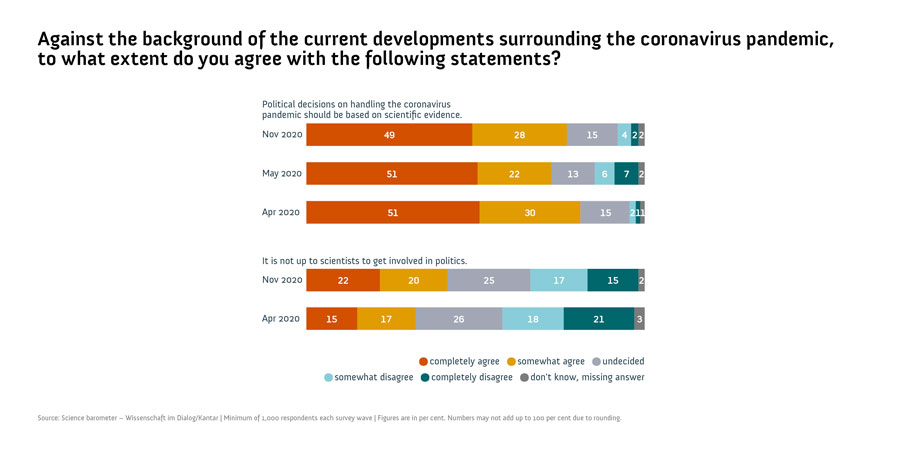
Science Barometer 2020. The use of the graphics of the results is possible if the source “Wissenschaft im Dialog/Kantar Emnid” is mentioned. The graphics run under the licence [CC BY-ND 4.0], adaptations of the format for editorial publications are permitted.
By contrast, increasingly less credibility is ascribed to the statements of politicians and journalists. One can conclude that researchers would be well advised to communicate coronavirus´ issues to the public themselves or to aim for a very close collaboration with the traditional media. The format of (scientific) podcasts (German) has proven to be a good option for this during the corona crisis – the number of listeners and their popularity have strongly increased over the previous year.
There is a very high level of trust that researchers are clearly communicating whether their statements are verified findings or open issues on the topic of the COVID-19 pandemic (46% – tend to agree and fully and completely agree; 40% undecided). Controversies among scientists are evaluated as being positive and informative by more than two thirds of those asked. For the Open Science community, this is a confirmation that it should campaign for discourse to be opened up and create spaces, so that this can take place transparently, publicly and comprehensibly.
This is even more important, because there are also people who “in the corona pandemic prefer to rely on ‘common sense’ than on scientific studies. It is even more important to communicate facts and recommendations for action via diverse formats, in order to reach those who are uncertain and have doubts”, confirms Tina Stengele, provisional head of the science division at the Robert Bosch Stiftung, which is supporting the Science Barometer.
Science Barometer and Open Science: Strengthen science communication
Applying and verifying scientific findings quickly has become more important than ever, owing to the corona crisis. This has led to science taking on a more prominent role amongst the public, whose trust in researchers and their integrity was also strong according to the last survey of the Science Barometer.“
“A decisive pillar in strengthening and extending trust is the accessibility and comprehensibility of research results.. (…) This strengthens us in our conviction that it is a successful model to explain findings and developments straightforwardly, to classify them and to present their benefits – for experts and laypersons alike”.
— Janis Eitner, director of communication at the Fraunhofer-Gesellschaft
From an Open Science perspective, now is certainly still a good time for urging the scientific system to become even more open in all its subprocesses, and for using professional science communication more widely, on own channels such as podcasts or on a stable cooperation with the traditional media. The negotiating position for more Open Science is favourable right now, and the experiences from the pandemic have made it unmistakably clear to everyone how important having a more open ecosystem of free knowledge is and will be in times of global crises.
This might also interest you:
- Science Barometer: a representative survey of German citizens on science and research
- Science Barometer 2020: Presentation and discussion of the central results (German)
- Brochure science barometer 2020 (PDF)
- Questionnaire science barometer 2020 (PDF)
- Detailed results of the Science Barometer by subgroups (PDF, German)
- The 2019/20 Barometer for the Academic World: New Insights for Open Science?
- Future Report: Who can transform scholarly publishing and communication?
- Open Economics: Study on Open Science Principles and Practice in Economics
- Open Science infiltrates the engine room of research: ZBW panel at the German Economic Association annual conference 2019
- Guidelines: How to implement Open Peer Review and foster its adoption
- Social Media and Scientific Communication: A minor role for Open Science in the statement?
This text has been translated from German.
Claudia Sittner studied journalism and languages in Hamburg and London. She was a long time lecturer at the ZBW publication Wirtschaftsdienst – a journal for economic policy, and is now the managing editor of the blog ZBW MediaTalk. She is also a freelance travel blogger (German), speaker and author. She can also be found on LinkedIn, Twitter and Xing.
Portrait: Claudia Sittner©
The use of the graphics of the results is possible if the source “Wissenschaft im Dialog/Kantar Emnid” is mentioned. The graphics run under the licence [CC BY-ND 4.0], adaptations of the format for editorial publications are permitted.
View Comments
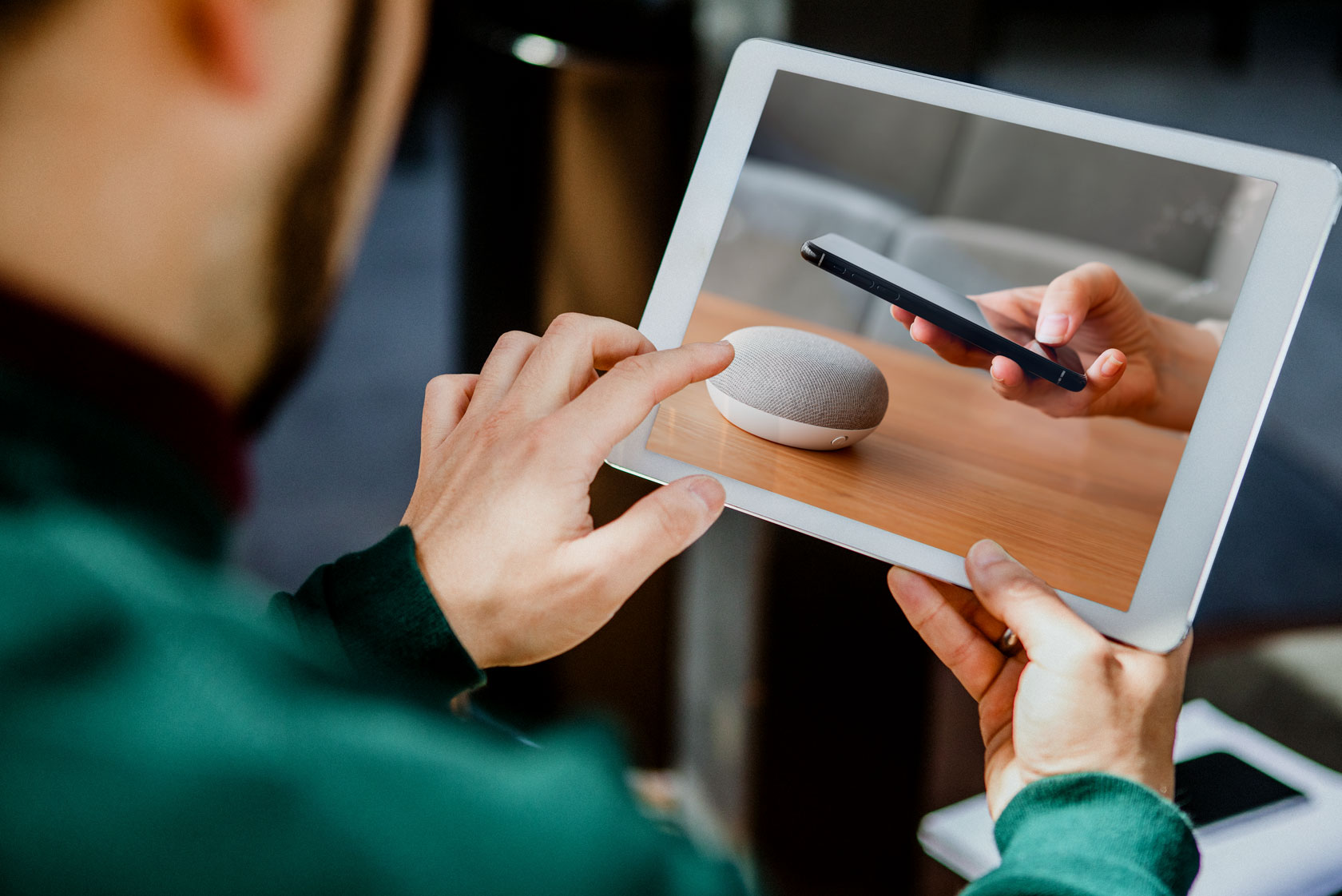
Digital Trends 2021: Collective Displacement Leads to Relocation and Rethinking of Activities
The trends expected to have an impact in 2021 are mostly influenced by the experience...



